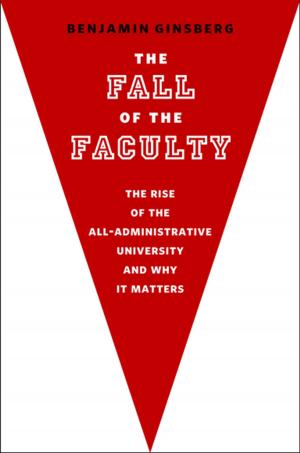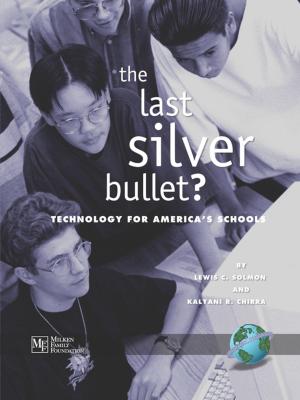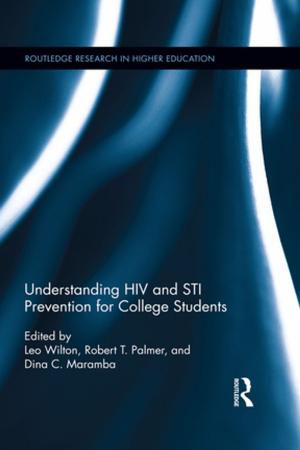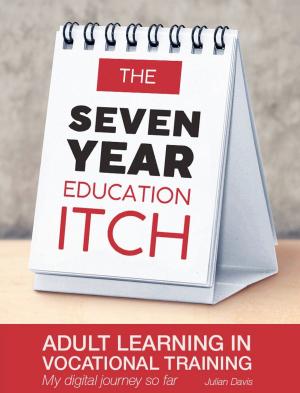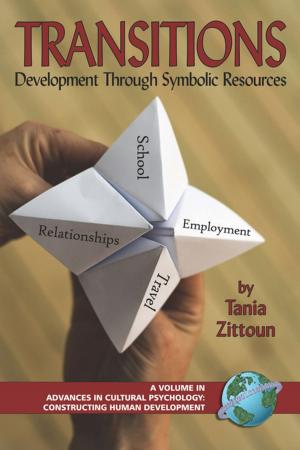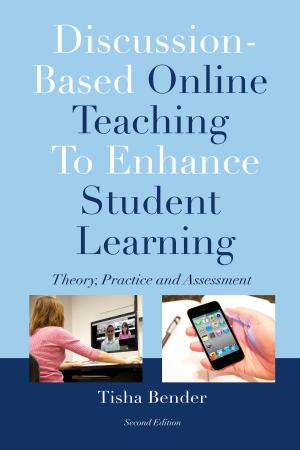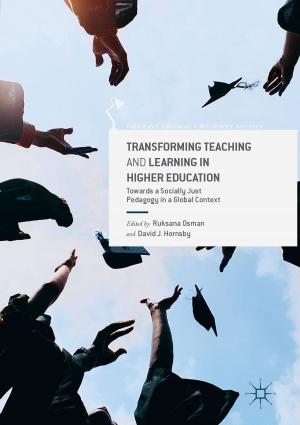Education and Development: Alternatives to Neoliberalism - A New Paradigm, Exploring Radical Openness, the Role of the Commons, and the P2P Foundation as an Alternative Discourse to Modernisation.
Nonfiction, Religion & Spirituality, Philosophy, Epistemology, Reference & Language, Education & Teaching, Educational Theory, Philosophy & Social Aspects, Higher Education| Author: | William Van Zyl | ISBN: | 9780473452315 |
| Publisher: | Five House Publishing | Publication: | August 21, 2018 |
| Imprint: | Language: | English |
| Author: | William Van Zyl |
| ISBN: | 9780473452315 |
| Publisher: | Five House Publishing |
| Publication: | August 21, 2018 |
| Imprint: | |
| Language: | English |
ABSTRACT
The theory of "modernisation" and the concept of "development education" have moved over the past decades from Neoliberalism to a future digital paradigm. With the advent of logarithmic development in the digital environment over the past 20 to 30 years, the concept and emerging theories about development education require a more robust assessment and exploration. The definition and the very nature of modernisation, as well as the possibilities of modernisation theory, in relation to the knowledge economy, will be discussed by drawing on the concepts of the four elements by David Suzuki (Environmentalist). Market fundamentalism is probably one of the biggest impediments to modernisation and social reform. For many years, during the past decades, this thinking was introduced and used to bring about cultural, social, economic and political change in many developing countries with the focus on markets and market reform. Neoliberalism is now seen by many as an effort to promote personal and corporate gain in the industrial world as we know it today. Collaboration, the freedom to contextualise, and 'free' and 'open' education have moved to the forefront to promote change. Some have argued that Neoliberalism is promoting self-interest, expanding individual property rights, promoting rigorous market exchange, and building global free trade. This view has been rigorously debated and contested by many different leaders, researchers, academia, and students as resources and education have become more open, and the threat to the biosphere is identified*.*
This essay will explore the new paradigm of openness and digital futures. The possible role it could play in future global education development and modernisation of the economies around the globe is the focus. The Commons will be considered, the Creative Commons (intellectual property rights) and the P2P (Peer-to-Peer) foundation is a force to be reckoned with. The possibilities of this discourse - as an alternative discourse to neoliberalism- has already profoundly impacted development. It is this digital framework of P2P collaboration that will be considered. It is the work of the commons - as tools for modernisation - and the knowledge economy, that will be the centre of discussion in this essay.
The possible creative and innovative actions to promote global development education and modernisation, harnessing the digital revolution of the knowledge economy and the development of global citizenship will be explored as a practical and new paradigm.
THE PRACTICAL INTENT OF THIS ESSAY:
From a practical perspective, the work of the FLOK Society in Ecuador, which endeavours to modernise and develop the existing economy with 'tools' for creative and innovative change (development education), will be looked at. This pioneering agent for economic change in South America started in 2013. Excerpts and references to the blog posts of a member of the FLOK Society are included on activities in Ecuador as it unfolds to explain the process of modernisation in Ecuador, more on this later.
BOOK DETAILS:
Word Count = 5955
31 Pages
APA Referencing
ABSTRACT
The theory of "modernisation" and the concept of "development education" have moved over the past decades from Neoliberalism to a future digital paradigm. With the advent of logarithmic development in the digital environment over the past 20 to 30 years, the concept and emerging theories about development education require a more robust assessment and exploration. The definition and the very nature of modernisation, as well as the possibilities of modernisation theory, in relation to the knowledge economy, will be discussed by drawing on the concepts of the four elements by David Suzuki (Environmentalist). Market fundamentalism is probably one of the biggest impediments to modernisation and social reform. For many years, during the past decades, this thinking was introduced and used to bring about cultural, social, economic and political change in many developing countries with the focus on markets and market reform. Neoliberalism is now seen by many as an effort to promote personal and corporate gain in the industrial world as we know it today. Collaboration, the freedom to contextualise, and 'free' and 'open' education have moved to the forefront to promote change. Some have argued that Neoliberalism is promoting self-interest, expanding individual property rights, promoting rigorous market exchange, and building global free trade. This view has been rigorously debated and contested by many different leaders, researchers, academia, and students as resources and education have become more open, and the threat to the biosphere is identified*.*
This essay will explore the new paradigm of openness and digital futures. The possible role it could play in future global education development and modernisation of the economies around the globe is the focus. The Commons will be considered, the Creative Commons (intellectual property rights) and the P2P (Peer-to-Peer) foundation is a force to be reckoned with. The possibilities of this discourse - as an alternative discourse to neoliberalism- has already profoundly impacted development. It is this digital framework of P2P collaboration that will be considered. It is the work of the commons - as tools for modernisation - and the knowledge economy, that will be the centre of discussion in this essay.
The possible creative and innovative actions to promote global development education and modernisation, harnessing the digital revolution of the knowledge economy and the development of global citizenship will be explored as a practical and new paradigm.
THE PRACTICAL INTENT OF THIS ESSAY:
From a practical perspective, the work of the FLOK Society in Ecuador, which endeavours to modernise and develop the existing economy with 'tools' for creative and innovative change (development education), will be looked at. This pioneering agent for economic change in South America started in 2013. Excerpts and references to the blog posts of a member of the FLOK Society are included on activities in Ecuador as it unfolds to explain the process of modernisation in Ecuador, more on this later.
BOOK DETAILS:
Word Count = 5955
31 Pages
APA Referencing


